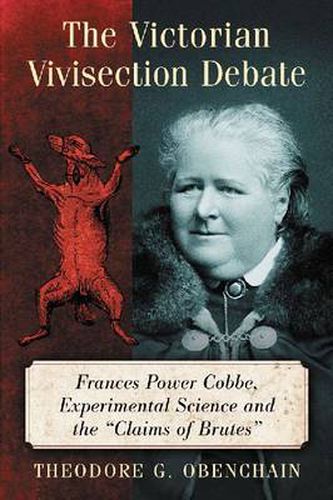Readings Newsletter
Become a Readings Member to make your shopping experience even easier.
Sign in or sign up for free!
You’re not far away from qualifying for FREE standard shipping within Australia
You’ve qualified for FREE standard shipping within Australia
The cart is loading…






This title is printed to order. This book may have been self-published. If so, we cannot guarantee the quality of the content. In the main most books will have gone through the editing process however some may not. We therefore suggest that you be aware of this before ordering this book. If in doubt check either the author or publisher’s details as we are unable to accept any returns unless they are faulty. Please contact us if you have any questions.
Is it justifiable for experimental scientists to impose a certain level of inhumanity upon live animals by subjecting them to open operations–forcing a few to suffer for the benefit of many? This work answers that question from both an historical and a personal perspective, expounding upon a debate playing out in Victorian England among experimental scientists, personified by Joseph Lister, Louis Pasteur and Robert Koch. Animal cruelty, both professional and on the street was ubiquitous. Journalist and reformer, Frances Power Cobbe, became so incensed by such acts that she devoted her political and legislative talents over a thirty year period to prohibit such activities. Struggling within the medical medievalism of the times was London surgeon Lister, hardly able to operate for fear his patients would succumb to sepsis. After reading of Pasteur’s new theory about germs, Lister devised a system of antisepsis that slowly revolutionized hospital care. These two scientists and Koch further expanded the scientific base by experimenting further on animals As their methods improved, they transformed medicine into a beneficent force so obvious that it inevitably became institutionalized into British culture. No single adversarial movement, regardless of its level of idealism, could have held back the tide of modernism. In the latter chapters the author brings the debate up to the 21st century by analyzing modern-day animal rights theories, and offers a credo for those readers who remain undecided.
$9.00 standard shipping within Australia
FREE standard shipping within Australia for orders over $100.00
Express & International shipping calculated at checkout
Stock availability can be subject to change without notice. We recommend calling the shop or contacting our online team to check availability of low stock items. Please see our Shopping Online page for more details.
This title is printed to order. This book may have been self-published. If so, we cannot guarantee the quality of the content. In the main most books will have gone through the editing process however some may not. We therefore suggest that you be aware of this before ordering this book. If in doubt check either the author or publisher’s details as we are unable to accept any returns unless they are faulty. Please contact us if you have any questions.
Is it justifiable for experimental scientists to impose a certain level of inhumanity upon live animals by subjecting them to open operations–forcing a few to suffer for the benefit of many? This work answers that question from both an historical and a personal perspective, expounding upon a debate playing out in Victorian England among experimental scientists, personified by Joseph Lister, Louis Pasteur and Robert Koch. Animal cruelty, both professional and on the street was ubiquitous. Journalist and reformer, Frances Power Cobbe, became so incensed by such acts that she devoted her political and legislative talents over a thirty year period to prohibit such activities. Struggling within the medical medievalism of the times was London surgeon Lister, hardly able to operate for fear his patients would succumb to sepsis. After reading of Pasteur’s new theory about germs, Lister devised a system of antisepsis that slowly revolutionized hospital care. These two scientists and Koch further expanded the scientific base by experimenting further on animals As their methods improved, they transformed medicine into a beneficent force so obvious that it inevitably became institutionalized into British culture. No single adversarial movement, regardless of its level of idealism, could have held back the tide of modernism. In the latter chapters the author brings the debate up to the 21st century by analyzing modern-day animal rights theories, and offers a credo for those readers who remain undecided.